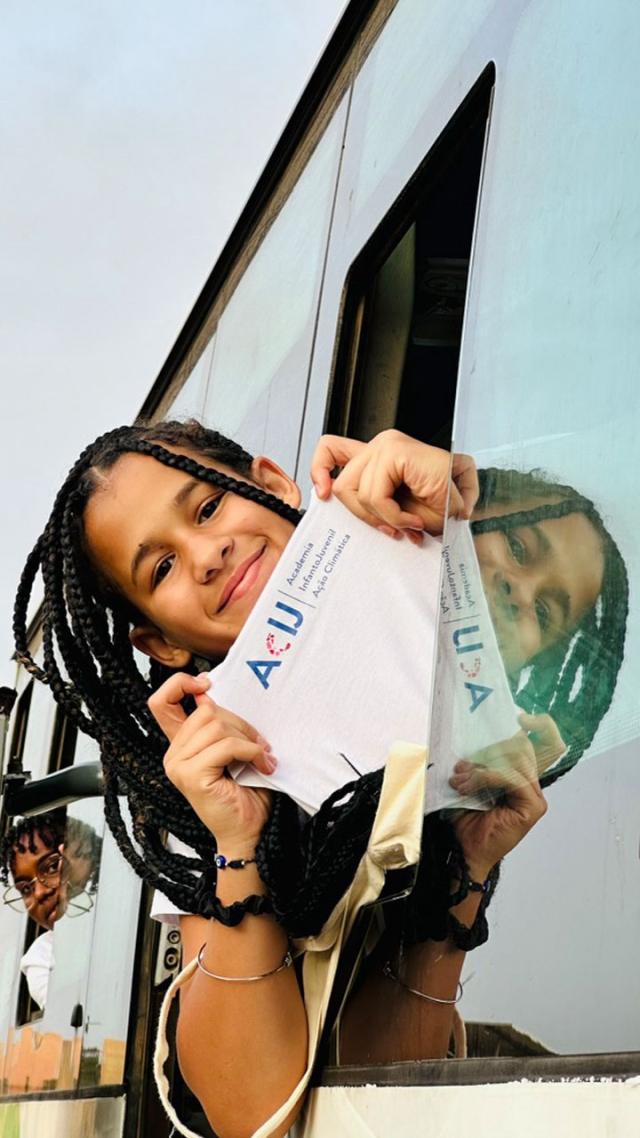A resilient Mosteiros: sea communities and climate action
Cabo Verde 04.11.2025 Project

In Mosteiros, Cabo Verde, artisanal fishing — a pillar of the local economy — is seeing its practices disrupted by the effects of climate change. To safeguard the main source of livelihood for hundreds of families and strengthen food security, the pilot project “Resilient Mosteiros: sustainable fisheries management and valorisation of marine resources”, supported by Luxembourg Cooperation, is developing solutions based on sustainable technologies and training for local operators. By the end of October 2025, tangible results had been achieved.
Adapting artisanal fishing to climate change
In the municipality of Mosteiros, on the island of Fogo, the sea is more than a resource — it is a way of life. Artisanal fishing is the main source of livelihood for hundreds of families and one of the local economic bases. With over 20 kilometres of coastline and around 113 fishermen, 37 shipowners, 16 fishmongers and 41 vessels, the sector now faces significant challenges due to climate change. Warming waters and ocean acidification have altered the distribution of species, driving pelagic fish away from the coast and increasing the effort required to catch them, with direct impacts on the economy and food security of communities.
In view of this reality, the Climate action programme — implemented by the Ministry of Agriculture and Environment with the support of Luxembourg Cooperation — is developing the pilot project "Resilient Mosteiros: sustainable fisheries management and valorisation of marine resources" within the framework of an operational partnership agreement with the Institute of the Sea (IMar). The project aims to promote the adaptation of artisanal fisheries to climate change by training local operators and introducing sustainable technologies.
Between 28 and 29 October 2025, one of the main results to be achieved was witnessed: the launch of four fish aggregation devices (FADs) along the coast of Mosteiros. These floating structures, installed between 0.4 and 0.5 nautical miles from the coast, increase the productivity of artisanal fishing, reduce fuel consumption and lessen pressure on marine habitats. The FADs were built and installed with the direct participation of fishermen, with technical support from IMar and the Vitó Project Association, which also coordinates the "Guardians of the Sea", an initiative dedicated to the surveillance and monitoring of marine ecosystems.
Gallery viewer
Strengthening local technical and entrepreneurial skills
At the same time, training courses on fish handling, processing and value-addition, food hygiene and safety, as well as small-business planning and management, were delivered to 30 artisanal fishing operators, including fishermen and fishmongers. These training courses strengthened local technical and entrepreneurial skills, promoting income diversification and enhancing the role of women in the fisheries value chain.
The Resilient Mosteiros project demonstrates that climate resilience is built locally through cooperation between institutions and communities. The partnership between the programme, IMar, the Mosteiros Municipal Council, the Fishermen's Association and the Vitó Project Association is an example of inclusive and sustainable climate action that can inspire future interventions in other coastal municipalities in Cabo Verde.
Gallery viewer
About the programme
The Climate action programme is funded by the Grand Duchy of Luxembourg and implemented by LuxDev, the Luxembourg Development Cooperation Agency.
Explore more
Discover the latest news from LuxDev and stay updated on the progress of cooperation projects and programmes implemented by the Agency.
All news-

Rwanda 09.02.2026
The FMES, Rwanda’s flagship digital innovation improving forest management
The FMES, Rwanda’s flagship digital innovation improving forest management -

Laos 06.02.2026
4th Steering Committee meeting of the Lao-Luxembourg Health and nutrition programme
4th Steering Committee meeting of the Lao-Luxembourg Health and nutrition programme






